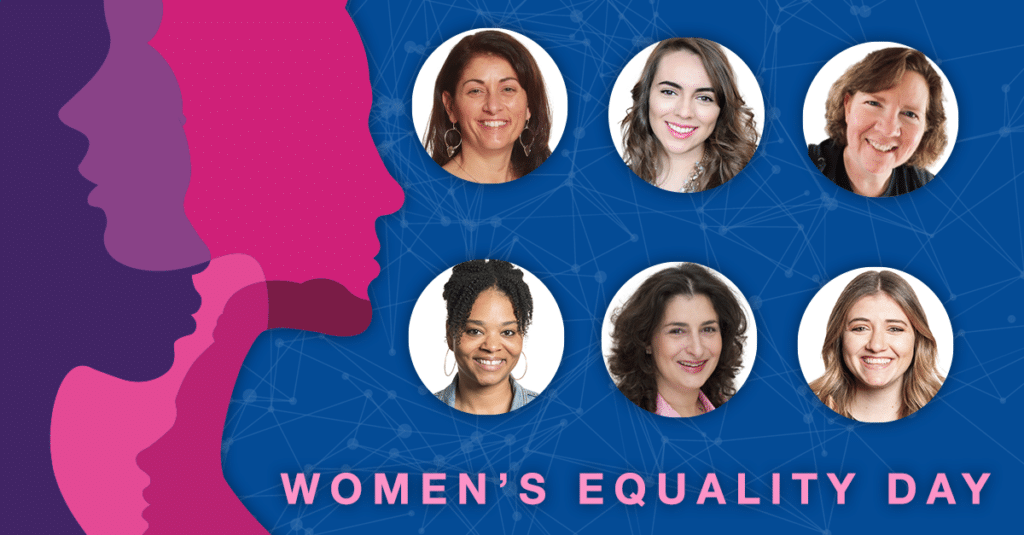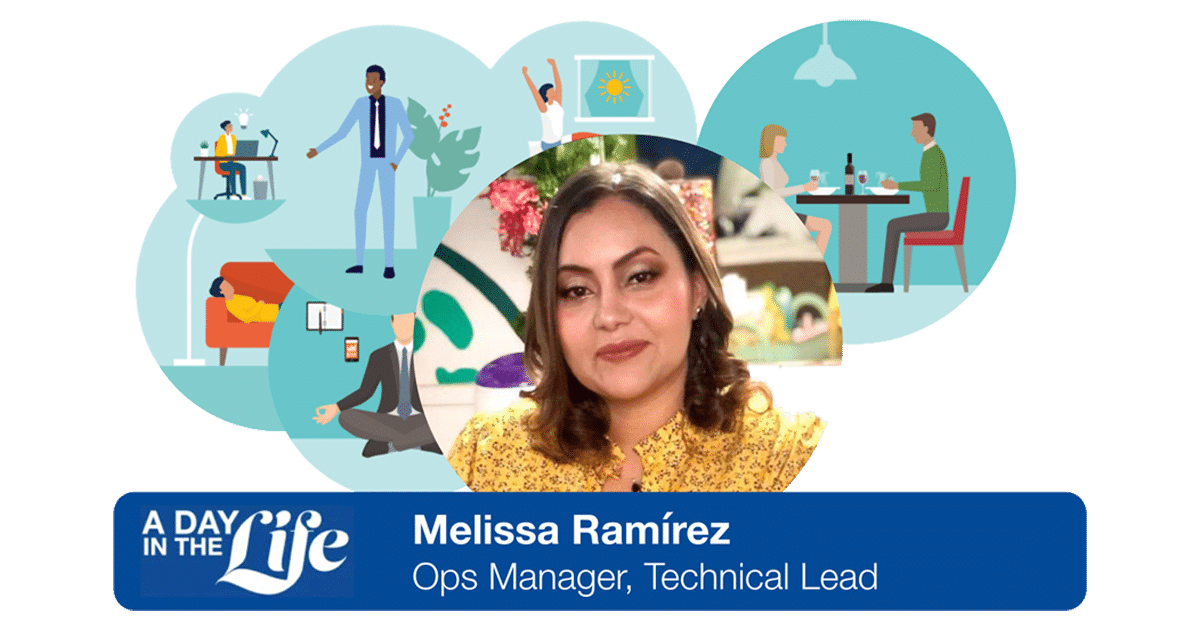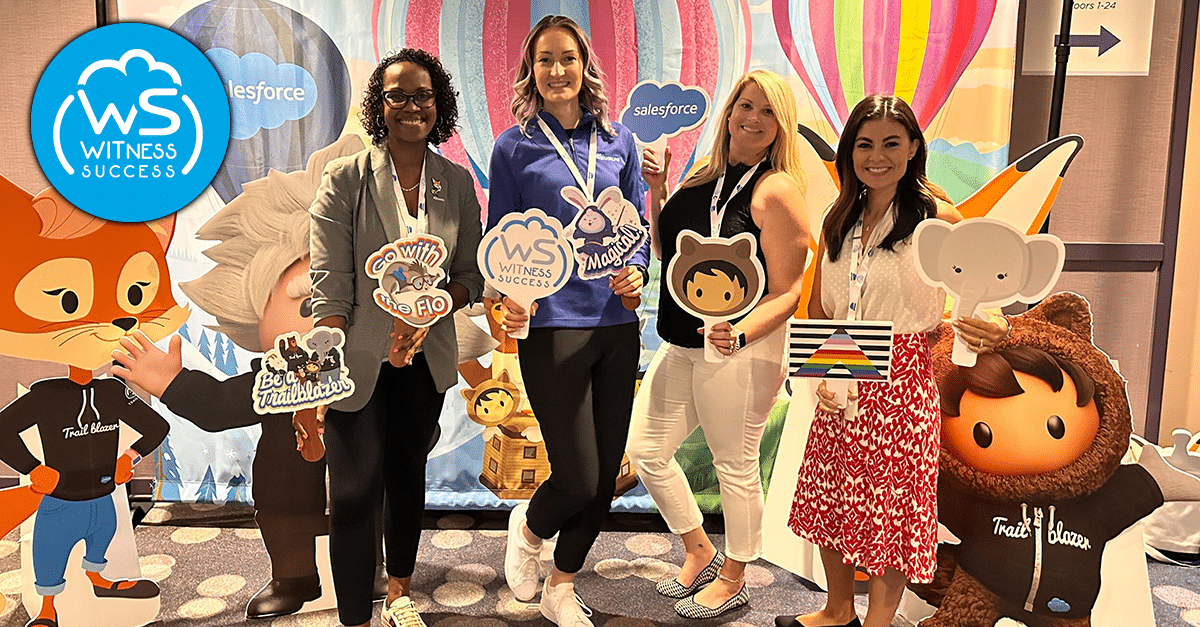Women’s Equality Day (August 26) recognizes the ratification of the 19th Amendment to the U.S. Constitution, which prohibits states and the federal government from denying citizens of the United States the right to vote on the basis of sex. Gaining the right to vote was a huge victory, giving U.S. women a voice in their government, empowering them to continue challenging traditional gender roles and breaking down barriers.
One of the greatest pleasures of being Silverline’s Senior Director of People is seeing our team members advance in their career journeys. For this year’s Women’s Equality Day, I spoke to some women who have seen significant career growth at Silverline. I invite you to read on to learn about how they entered the Salesforce ecosystem, some of the challenges they faced, and the skills they took advantage of to help them succeed.
Yanique Bourjolly
Customer Success Manager, AppExchange
How did you first get involved in the Salesforce ecosystem?
I first got involved in the Salesforce ecosystem when I applied for the CalendarAnything Sales Associate position 10 years ago. After working in sales for a few years, I got promoted to the Head of Customer Success and I provide ongoing support to all our 500+ AppExchange clients.
What was a major challenge in your career journey and how did you overcome it?
A major challenge in being a woman of color in tech that I had to personally overcome was getting over my imposter syndrome. I’d get anxious and tighten up when I’d have to present to a huge client and be one of the few women in the room. It took time to get over this fear but I realized the more I prepared for my demos and leaned on my expertise, the more confident I’d become and eventually I overcame this limiting mindset and was able to thrive in my presentations.
What are some of the most valuable skills you’ve learned in your career journey?
Some of the most valuable skills I learned in my career journey at Silverline are time management, effective communication with my team members and clients, problem solving and stress management skills, and Salesforce administration.
What is something you wish you knew when you were first starting your career?
One thing I wish I knew after working for 10 years with Silverline, is that although you have a job title, your role and responsibilities will change throughout the years and you have to be adaptive and flexible to the change in order to grow in your career.
Kathleen CaJacob
Senior Director, Sub-Vertical Lead, Banking
How did you first get involved in the Salesforce ecosystem?
Prior to joining Silverline I had a 20+ year career in banking. In 2016, while I was working at KeyBank, the company selected nCino for their commercial loan operating system. I served as the Product Owner for the two-year nCino implementation program and went on to help establish Key’s Salesforce COE. As a leader in the Salesforce COE, I set the strategic priorities each year for Salesforce and nCino.
What was a major challenge in your career journey and how did you overcome it?
My biggest challenge was learning how to build and leverage my network. Advancing my career required networking, working with mentors, and taking risks. As an introvert, I’m not always comfortable reaching out to others to ask for guidance. However, I’ve learned that most people are more than happy to help. I’ve also made an effort to mentor others, whether informally or through an official mentoring program.
What are some of the most valuable skills you’ve learned in your career journey?
So much focus is on skills, experience, and expertise. What I’ve found to be the most valuable though is the ability to connect with people. We spend so much time throughout our careers with our co-workers, it’s so important to get to know each other. I try to find a way to connect personally with everyone I work with.
What is something you wish you knew when you were first starting your career?
Be authentic and be yourself. When starting out in our careers, so often we feel as if we need to play a part. We have a version of ourselves at work and a different version of ourselves in our personal lives. I’ve learned over the years that being my authentic self at work leads to more success and is ultimately more rewarding.
Kori Deitz
HR Manager, North America
How did you first get involved in the Salesforce ecosystem?
I came into the Salesforce ecosystem by happenstance. A friend handed my resume to someone she met on the train while commuting for the receptionist position at Silverline. I interviewed and started at Silverline without really knowing what Salesforce was. Over the past eight years, I’ve learned so much about the platform and the ecosystem by volunteering at various after-hours events like Salesforce User Groups held in the New York office, happy hours with partners, and events held by our Marketing Team.
What was a major challenge in your career journey and how did you overcome it?
Before I landed in Human Resources, I worked on our Finance team for a year doing collections. No one wants to be told they owe money, so in the beginning I was ignored more than I got responses to my outreach. I tried everything I could just shy of barging into client offices to get a response and many times with no luck. Because collections was my sole focus at that time, it was hard to accept that I wasn’t progressing as quickly as everyone wanted. I felt like I was failing. I kept thinking there was something about me that caused clients to ignore me.
Did I look too young in my profile picture? Was my title not senior enough? Did they not take me seriously because I was a woman working in Finance? When I was finally at my wits end, I turned to each of the client teams for help. Their help, even just a quick mention on a standup call, made such a difference. It took me a long time to realize that I didn’t need to go about this alone and that asking for help didn’t mean I was bad at my job. I was actually better at my job, and ultimately collected invoices quicker, when I asked for help. And that’s what was best for everyone.
What are some of the most valuable skills you’ve learned in your career journey?
Early on in my working career, I had a manager tell me it’s OK to say “I don’t know,” but what’s not OK is to just leave your answer at that. The phrase “I don’t know” doesn’t help anyone progress towards a solution. It actually does the opposite. Instead, I learned to respond with some variation of “I don’t know but let me find out for you”, or “I don’t know but so-and-so definitely will so let’s ask them”. The person asking for help will be more appreciative that you’re helping them towards their end goal, and you’re more likely to build trust and a positive relationship with those around you.
What is something you wish you knew when you were first starting your career?
Take the opportunity to learn new things, even if it doesn’t entirely align with your career end goal. I never thought that working in Finance was something I wanted to do, but I learned so much from my time on that team. While I probably won’t seek out a job in finance in the future, I use that knowledge almost every day now working in Human Resources, and look back at my time in that role as invaluable.
Noelle Lafferty
Services Lead, Managed Services
How did you first get involved in the Salesforce ecosystem?
I had been involved in a custom app development project working with the team on the UI, training, and user adoption. The project was very successful, and the Publisher of the company took notice and requested I take over Salesforce. At the time Salesforce had been unmanaged for a year with extremely low adoption. My first response was, “What’s Salesforce?” I was extremely reluctant to take it over with virtually no experience with the product. My boss at the time encouraged me to take it on.
The leadership team gave me the time and space to teach myself the tool and meet with the stakeholders in each department to understand the challenges they had with Salesforce. Within a few months I outlined a roadmap defined by the use cases I found with each stakeholder, presented it to the Publisher and company leaders, and they approved the budget. I spent the next seven years building out that vision with bumps along the road, but in the end, it was the front-end system with a full 360-view of a customer and 100% adoption.
What was a major challenge in your career journey and how did you overcome it?
A major challenge in my career has been gaining users’ trust and acceptance for a tool that was changing the way they had always done things. I was asking users on an entirely paper-driven workflow to go digital. They were not jumping for joy when I walked in the room. I found that involving them in the process, over-communicating, and repetitive training helped many of them find the value and improvement in the change. I had an old colleague reach out to me during the pandemic to tell me the tool I was instrumental in building was how they were able to continue to work because the information they needed was in the cloud and they could access it from anywhere.
What are some of the most valuable skills you’ve learned in your career journey?
I think my ability to adapt to my surroundings. I can talk to anyone and find common ground. It doesn’t hurt to be super chatty when trying to uncover a group’s pain points with processes or systems, and a bit of humor can go a long way!
What is something you wish you knew when you were first starting your career?
I wish I had less self-doubt and knew with a bit of determination and hard work I was and am capable. I’ve been incredibly lucky to have worked with some amazing, encouraging people that pushed me and believed in me until I caught up.
Gabby Miles
Solution Architect
How did you first get involved in the Salesforce ecosystem?
I was hired by Accenture to join the Salesforce ecosystem. Initially, I interviewed for a Software Engineer role specializing in JavaScript Front-End Development and during the interview process we discussed my ability to learn and acquire different skills (I went to two different universities simultaneously for two different Engineering degrees).
What was a major challenge in your career journey and how did you overcome it?
Transitioning from Industrial Engineering to Software Engineering was challenging and it took about nine months while I was working part time as a QA Engineer. I managed to switch fields through a combination of tutoring from my husband and completing courses on platforms like TeamTreehouse and FreeCodeCamp. I built a portfolio of personal projects and did some freelance work building websites before landing my first full-time IT job.
What are some of the most valuable skills you’ve learned in your career journey?
Presenting and demoing. Recording myself before presentations as a way of rehearsing has allowed me to see areas of improvement. And knowing where and how to search for information. Using the right keywords in the correct search engines helps me find the right information faster.
What is something you wish you knew when you were first starting your career?
When learning something new, it’s important not to fixate on the extent of knowledge you need to acquire, as this can lead to feeling overwhelmed or completely blocked. Instead, it’s best to chart a path, break it into smaller pieces, and take it one day at a time.
Gina Rotenberg
Principal Consultant, Financial Services
How did you first get involved in the Salesforce ecosystem?
Like many in the Salesforce ecosystem I was an “Accidental Admin.” I was trained as a corporate attorney! After leaving the law, I was working for an equipment finance company leading the loan operations group and always on the lookout for ways to leverage technology to improve efficiency in our high-volume business. My company had previously invested in Salesforce and so I was able to explore the power of the platform. As our business grew and evolved, Salesforce was a natural fit to support our digital transformation. I became the Salesforce product owner and before I knew it I was collecting Trailhead badges and certifications!
What was a major challenge in your career journey and how did you overcome it?
Making the leap into the tech industry was a challenge for me. I was first introduced to technology back in the stone age of personal computers. Our family’s first computer had only 16K of memory! Back then, my brother was the one that got coding lessons and I could only learn over his shoulder. Technology was something I was always interested in, but it didn’t seem like a career that was accessible to girls at that time.
The Salesforce ecosystem was so welcoming and all the free educational support that was available through the community made it possible for me to retrain. I also had the support of my employers at the time who saw my potential and encouraged me to try this new line of work. They really gave me a great launching pad and I’ve tried to pay that forward by mentoring young people and encouraging them to grow and stretch and try new things.
What are some of the most valuable skills you’ve learned in your career journey?
Relationship building and strong communication are the most important skills to any profession. That’s especially true for consulting work. Establishing a foundation of mutual trust, respect, and camaraderie — whether with your coworkers or clients — is critical to success. With that in place, you can have the tough conversations where needed and hopefully celebrate successes often.
What is something you wish you knew when you were first starting your career?
I wish I knew I was going to have so many interesting career choices in my life! Growing up, I always thought there were clearly defined paths for success and that once you were on one of them, that would be your identity. Instead I have found that my professional life has been so much more varied than I ever would have imagined. I think people first getting started on their career paths should keep their minds open to new opportunities and not feel that they are locked into a particular career.




